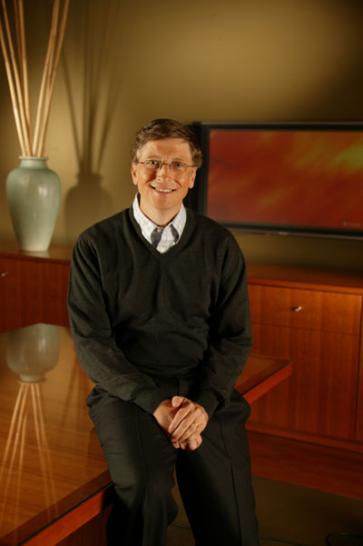Bill Gates and the First Pirates (PCGH-Retro, February 3)


Bill Gates and the first pirate copies – that happened on February 3rd. Every day, PC Games Hardware takes a look back at the young but eventful history of the computer.
…1976: The software market is still very young in 1976, because there are hardly any freely available computers for everyone that can be fed with programs. Only one has achieved significant distribution: the MITS Altair 8800. The most popular software for this simple computer is the programming language Altair Basic, the first product of the young software company Micro-Soft (which at that time still spells itself with a hyphen). But not every owner of an 8800 who uses Altair Basic has also bought the program: “pirated copies” are circulating in the computer clubs. At a meeting of the legendary Homebrew Computer Club, which includes later Apple founders Steve Wozniak and Steve Jobs, a member brought more than 70 unauthorized copies of the program to distribute for free.
Bill Gates, who co-founded Microsoft with Paul Allen and wrote Altair Basic, reacted to this incident with an open letter in the Homebrew Computer Club’s newsletter, which was later reprinted in other publications. Entitled “An Open Letter to Hobbyists,” the text is dated February 3, 1976. In it, Gates laments the culture of carefree copying of paid software that the fledgling software industry and This is also a pity for the users: “Who can afford to do professional work for nothing?” The letter addresses the problem of software piracy for the first time and is also credited with pioneering the development of open source and free software. You can write Bill Gates’ here recall.
…1999: DirectX 6.1 comes onto the “market” and adds support to Microsoft’s collection of interfaces for the Pentium III instruction set extension called “Katmai New Instructions” (KNI), later iSSE and even later simply SSE. In addition, with “DirectMusic” there is now a standardized music interface in the Windows world for the first time, which combines the advantages of the Wavetable Synthesis of the MIDI association with downloadable samples as well as a MIDI instrument set under license from Roland and a software synthesizer solution. With this, dynamically adaptable music, as it is already used in proprietary solutions in individual cases, should finally become standard. The developers initially reacted positively, but the interface quickly fell into oblivion again.
Further links on the topic:
• Bill Gates Resigns (PCGH Retro)
• Bill Gates’ last day at Microsoft (PCGH Retro)
Reference-www.pcgameshardware.de